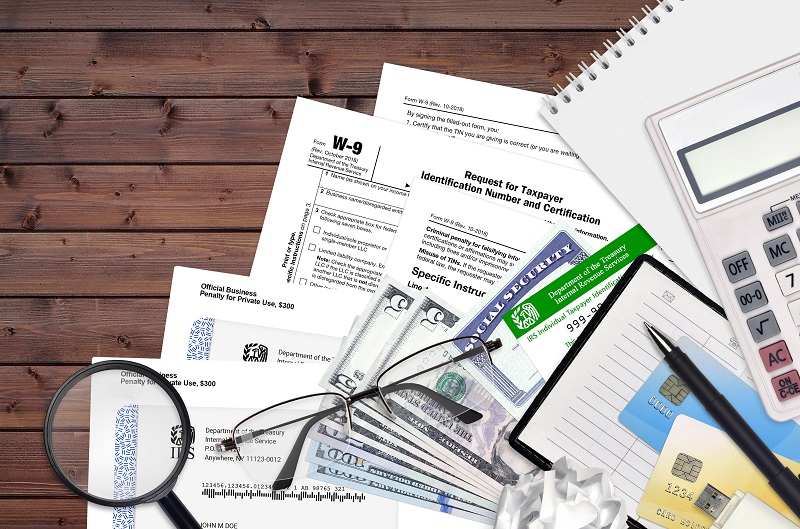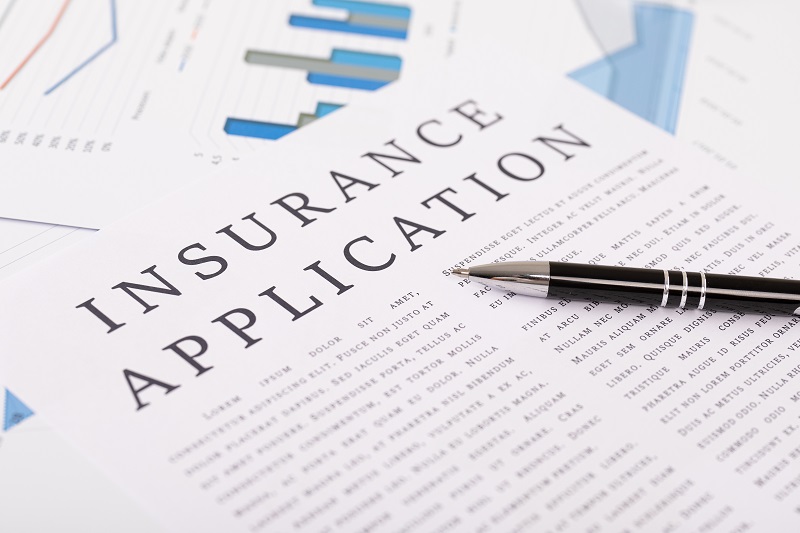If you’re interested in starting a credit repair business in Massachusetts, it’s crucial to familiarize yourself with the state’s legal requirements. In this article, we’ll cover the laws and regulations you need to know to run a successful credit repair business.
Choose a Business Name

Choose a unique and memorable name for your credit repair business. Make sure the name is not already in use by another business.
Unique and Distinctive:
Choose a business name that is unique, distinctive, and memorable. Avoid generic names or names that are too similar to existing businesses.
Avoid Restricted Words:
Massachusetts restricts the use of certain words and phrases in business names, such as “bank,” “insurance,” and “trust.” Make sure your business name does not include any restricted words or phrases unless you have obtained the necessary licenses or permits.
Check Availability:
Before settling on a business name, check the availability of the name with the Massachusetts Secretary of the Commonwealth. You can search for available names online or by mail.
Consider Your Brand:
Choose a name that reflects your brand and the services you provide. Make sure the name is appropriate and professional for your industry.
Check Domain Availability:
Consider whether the domain name for your business name is available for a website. Register the domain name and establish a website to increase your online visibility.
Consult with a Legal or Business Professional:
Consult with a legal or business professional familiar with Massachusetts regulations to ensure your business name complies with all applicable laws and regulations.
Remember to choose a business name that represents your credit repair business and helps you stand out in the market. A memorable and professional business name can help attract potential customers and build your brand identity.
Choose a Business Structure

Decide on the business structure for your credit repair business, such as a sole proprietorship, partnership, LLC, or corporation. Consult with a legal or business professional to determine the best structure for your needs.
Sole Proprietorship:
A sole proprietorship is the simplest and most common business structure. The business is owned and operated by one individual, who is personally responsible for all business debts and liabilities.
Partnership:
A partnership is a business owned by two or more individuals who share profits and losses. Partnerships can be general partnerships or limited partnerships.
Limited Liability Company (LLC):
An LLC is a flexible business structure that combines the liability protection of a corporation with the tax benefits of a partnership. LLC owners, or members, are not personally liable for business debts and liabilities.
Corporation:
A corporation is a separate legal entity from its owners or shareholders. Corporations provide liability protection for shareholders but are subject to double taxation.
When choosing a business structure for your credit repair business, consider factors such as liability protection, tax benefits, management structure, and ease of administration. Consult with a legal or business professional to determine the best structure for your needs.
Register Your Business

Register your credit repair business with the Massachusetts Secretary of the Commonwealth. You can register online or by mail. You will need to provide your business name, structure, and contact information.
Choose a Business Name:
Choose a unique and memorable name for your credit repair business that complies with Massachusetts regulations.
Choose a Business Structure:
Decide on the business structure for your credit repair business, such as a sole proprietorship, partnership, LLC, or corporation.
Obtain an EIN:
Apply for an Employer Identification Number (EIN) from the Internal Revenue Service (IRS). You will need an EIN to open a business bank account and file taxes.
File a Certificate of Organization:
If you choose an LLC structure, file a Certificate of Organization with the Massachusetts Secretary of the Commonwealth. The certificate includes your business name, business purpose, registered agent, and contact information.
File Articles of Organization:
If you choose a corporation structure, file Articles of Organization with the Massachusetts Secretary of the Commonwealth. The articles include your business name, registered agent, and contact information.
Register your business with the state:
Register your business with the Massachusetts Secretary of the Commonwealth. You can register online or by mail. You will need to provide your business name, structure, and contact information.
Obtain any Necessary Permits or Licenses:
Massachusetts does not require a specific license for credit repair businesses. However, you may need to obtain a general business license or other local permits, depending on your location and business structure.
To register your business online, visit the Massachusetts Secretary of the Commonwealth’s Corporations Division website.
To register by mail, you can download the necessary forms from the website and mail them to the Corporations Division. You can also visit the Corporations Division office in person at 1 Ashburton Place, 17th Floor, Boston, MA 02108.
Obtain an EIN

Apply for an Employer Identification Number (EIN) from the Internal Revenue Service (IRS). You will need an EIN to open a business bank account and file taxes.
Determine If You Need an EIN:
An EIN is required if you have employees, operate as a partnership or corporation, or have certain tax obligations. Even if you don’t have employees, it’s recommended to obtain an EIN to open a business bank account and establish business credit.
Apply Online:
The fastest and easiest way to apply for an EIN is online through the IRS website. Go to the EIN application page, and follow the steps to complete the online application.
Apply by Mail:
If you prefer to apply by mail, download and complete Form SS-4 from the IRS website. Mail the completed form to the appropriate address listed in the instructions.
Receive your EIN:
Once your EIN application is processed, you will receive your EIN by mail or email, depending on the method you chose.
Remember to keep your EIN on file and use it to file taxes and open a business bank account. It’s also important to comply with all applicable federal and state regulations when operating your credit repair business, such as the Credit Repair Organizations Act (CROA) and the Massachusetts Credit Services Organizations Act.
Obtain Any Necessary Permits or Licenses

Massachusetts does not require a specific license for credit repair businesses. However, you may need to obtain a general business license or other local permits, depending on your location and business structure.
Business Certificate:
In Massachusetts, all businesses operating under a name that is not the full name of the owner(s) must file a Business Certificate with the city or town clerk where the business is located. This certificate serves as proof of the business name and owner(s). You can obtain a Business Certificate by filing a form with the city or town clerk.
Home Occupation Permit:
If you plan to operate your credit repair business from your home in Massachusetts, you may need to obtain a Home Occupation Permit from your local zoning department. This permit allows you to operate a business from your home as long as it does not cause disruption to the neighborhood or violate zoning laws.
Sales Tax Permit:
If your credit repair business sells tangible goods or provides taxable services, you may need to obtain a Sales Tax Permit from the Massachusetts Department of Revenue. This permit allows you to collect and remit sales tax to the state.
Professional Licenses:
Depending on the services you offer; you may need to obtain professional licenses or certifications to operate legally in Massachusetts. For example, if you offer legal advice or credit counseling services, you may need to obtain a license from the appropriate licensing agency.
Obtain a Surety Bond:

Massachusetts requires credit repair businesses to obtain a surety bond of at least $10,000. This bond is intended to protect consumers from any potential financial harm caused by the credit repair business. You can obtain a surety bond from a licensed surety bond company.
Determine the Bond Amount:
The Massachusetts Credit Services Organizations Act requires credit repair businesses to obtain a surety bond in an amount not less than $10,000.
Find a Surety Bond Provider:
Contact a surety bond provider licensed to do business in Massachusetts. You can search for a provider online or ask for referrals from other credit repair professionals or industry associations.
Apply for a Surety Bond:
Complete an application for a surety bond with the provider. You will need to provide personal and business information, such as your business name, structure, and financial history.
Underwriting Process:
The surety bond provider will underwrite your application and determine your bond premium based on your credit history, business experience, and financial stability.
Obtain Your Surety Bond:
Once your application is approved and your premium is paid, the surety bond provider will issue your surety bond. Make sure to keep a copy of the bond on file and provide a copy to any clients or regulatory agencies that require it.
Remember that a surety bond is designed to protect consumers from any unethical or illegal practices by credit repair businesses. It’s important to comply with all applicable federal and state regulations, such as the Credit Repair Organizations Act (CROA) and the Massachusetts Credit Services Organizations Act, to maintain your bond and reputation in the industry.
Comply with Federal Regulations

Credit repair businesses in Massachusetts must comply with federal regulations, such as the Credit Repair Organizations Act (CROA) and the Fair Credit Reporting Act (FCRA).
The CROA prohibits credit repair businesses from making false or misleading claims, charging upfront fees, and other deceptive practices. The FCRA governs the collection, dissemination, and use of consumer information, including credit reporting.
Credit Repair Organizations Act (CROA):
This federal law regulates credit repair organizations nationwide and requires them to provide consumers with a written contract, perform services as promised, and refrain from making false or misleading statements. Credit repair organizations must also provide consumers with the right to cancel their contract within three days of signing.
Massachusetts Credit Services Organizations Act:
This state law regulates credit repair organizations operating in Massachusetts. It requires credit repair organizations to obtain a surety bond, provide consumers with a written contract, and refrain from making false or misleading statements. Credit repair organizations must also provide consumers with the right to cancel their contract within five days of signing.
Fair Credit Reporting Act (FCRA):
This federal law regulates how consumer credit information is collected, used, and reported by credit reporting agencies. Credit repair businesses must comply with the FCRA when disputing inaccurate or incomplete credit information on behalf of consumers.
Truth in Lending Act (TILA):
This federal law regulates how credit is offered and disclosed to consumers. Credit repair businesses must comply with the TILA when providing credit counseling or other related services to consumers.
Massachusetts Consumer Protection Act:
This state law prohibits unfair and deceptive business practices and allows consumers to seek legal remedies for any harm caused by such practices. Credit repair businesses must comply with this law when conducting business in Massachusetts.
MA. Gen. Laws. 15-93 § 68 et seq. refers to the Massachusetts Credit Services Organizations Act. This state law regulates credit repair organizations operating in Massachusetts and requires them to comply with certain requirements to protect consumers. Some of the key requirements of the Massachusetts Credit Services Organizations Act include:
Surety Bond:
Credit repair organizations in Massachusetts must obtain a surety bond in an amount not less than $10,000 to ensure that they fulfill their obligations to consumers.
Written Contract:
Credit repair organizations must provide consumers with a written contract that outlines the services to be provided, the cost of the services, and the terms of the contract.
Right to Cancel:
Consumers have the right to cancel their contract with a credit repair organization within five days of signing without penalty.
Prohibition on Misrepresentations:
Credit repair organizations are prohibited from making false or misleading statements about their services or the results that consumers can expect.
Record Keeping:
Credit repair organizations must maintain records of their transactions with consumers for a period of two years.
Obtain Business Insurance

While there are no specific insurance requirements for credit repair businesses in Massachusetts, it’s recommended to obtain general liability insurance and professional liability insurance to protect your business from potential risks.
Credit repair businesses in Massachusetts are not required to carry specific insurance, but it is recommended that they consider obtaining certain types of insurance to protect their business and assets. Here are some types of insurance that credit repair businesses in Massachusetts may want to consider:
General Liability Insurance:
This insurance protects against claims of bodily injury or property damage that occur as a result of business operations, such as a client getting injured while visiting the office.
Professional Liability Insurance:
Also known as errors and omissions insurance, this insurance protects against claims of negligence or failure to provide adequate services, such as a client claiming that the credit repair business made errors in their credit report disputes.
Cyber Liability Insurance:
This insurance protects against data breaches, cyber-attacks, and other cyber risks that can compromise sensitive client information.
Business Property Insurance:
This insurance protects against damage to business property, such as office equipment or inventory, due to covered events like fire, theft, or vandalism.
Workers' Compensation Insurance:
If the credit repair business has employees, workers’ compensation insurance is required by Massachusetts law. This insurance provides benefits to employees who are injured or become ill as a result of their job.
Ready to start your credit repair business in Massachusetts?
Make sure you are informed and compliant with the latest state laws.
Click now to learn more.
With the proper compliance measures in place, you can establish a reputable credit repair business in Massachusetts that provides valuable services to individuals and families.
Bonus: Now that you have read this article, why not take your new skill and start your own credit business helping others? We have free training that can help you do just that.

